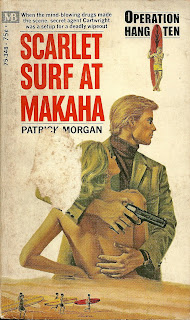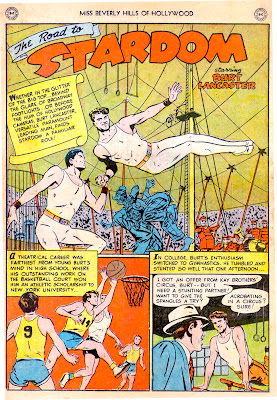
1980’s WINDOWS is an extremely obscure picture today, despite its relative youth and the fact it came from a major studio, United Artists. This notoriously awful, sick psychological thriller is also the only film directed by master cinematographer Gordon Willis (THE GODFATHER films), which makes it more than just a curiosity.
Emily (Talia Shire, whom Willis “shot” in THE GODFATHER), a mousy window-dresser with a stuttering problem, is raped in her apartment by a man with a tape recorder. The rapist, who is soon captured (in a pretty foolish way) and never mentioned again, gives the tape to Emily's friend and neighbor Andrea (Elizabeth Ashley), a twisted psycho lesbian who listens to Emily's recorded moans over and over in the dark. After Emily moves into a "safer" building, Andrea takes a loft across the river, where she uses a telescope to spy upon Emily's tentative relationship with the cop investigating the rape, Bob Leffrono (Joe Cortese).
WINDOWS is one of the sleaziest studio pictures I've ever seen, featuring a prolonged rape scene, serious lapses in taste and logic, and one of recent cinema's most embarrassing portrayals of that old stereotype staple--the deranged, perverted, murderous homosexual. Those who picketed BASIC INSTINCT ain't seen nuthin' 'til they've checked out Ashley's ranting and quite unsubtle ravings.
Ashley’s performance is the most obviously awful, since she's so far over the top, but Shire's acting is even worse, relying on the same "wounded deer" schtick she brought to several roles (including her Oscar nominated turn in ROCKY). Since WINDOWS begins with her rape, we're unable to gauge how Emily's behavior changes after the attack. It doesn't appear she was very interesting in the first place and definitely not the type to attract Cortese's cop.
Cortese, delivering the movie's third bad performance, looks like he's sleepwalking, reading his lines with the same inflection whether he's calling for a cab or scrambling to save his girlfriend's life. Actually, he doesn't scramble so much as sit on his fanny and wait for something to happen.
Because Willis served as his own cinematographer, it's no surprise that WINDOWS at least looks good. Many shots contain the same warm browns THE GODFATHER was so famous for, and Ennio Morricone's sensitive score helps, but not nearly enough to make up for Barry Siegel's illogical, slow-moving, and offensive screenplay and the poor performances.
WINDOWS didn’t do much for anyone’s career. Willis never directed again, but continued as an A-list cinematographer on big movies like PRESUMED INNOCENT and Woody Allen fare until his (apparent) 1997 retirement. Cortese moved on to a couple of TV pilots directed by William Friedkin and the shortlived sci-fi/cop series SOMETHING IS OUT THERE. Likewise, Shire and Ashley continued their careers as busy character actresses.
Still, I must admit, if WINDOWS was released to DVD with a commentary track by anyone involved with the production, I'd snap it up immediately to find out how the heck this mess got bankrolled. As far as I know, WINDOWS has never received a home video release. I saw it many years ago on cable—I think on Cinemax—and it would make an interesting double feature with CRUISING, another controversial thriller about a homosexual murderer that filmed in New York at about the same time, the winter of 1979.
 One of trash literature's most misogynist counterculture heroes returns in the luridly titled SCARLET SURF AT MAKAHA (McFadden, 1970), which is really the most extreme aspect of the fourth Operation Hang Ten novel.
One of trash literature's most misogynist counterculture heroes returns in the luridly titled SCARLET SURF AT MAKAHA (McFadden, 1970), which is really the most extreme aspect of the fourth Operation Hang Ten novel.













